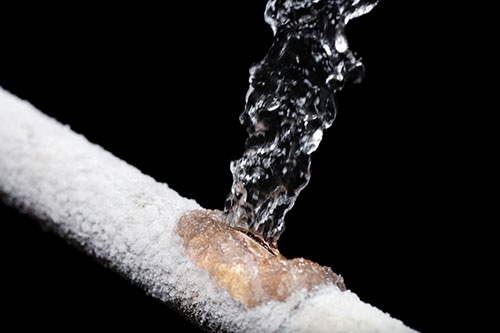
This winter has turned out to be one of the coldest ever recorded. Blowing winds and temperatures far below zero cancel school days and keep families pent up in their own homes. Unfortunately, this harsh weather can also have ill effects on a house. One common result that keeps plumbers on their toes is frozen pipes. Whether they are unheated interior pipes or those against an exterior wall, most any pipe runs the risk of freezing solid. In fact, it is one of the most common causes of property damage during the frigid winter months.
To avoid such a nuisance, there are a few preventative actions you can take. First and foremost, you should keep water flowing through the pipes to keep them warm. Believe me, a little extra money spent on the water will be far less than a repair bill. Next, you should open kitchen and bathroom cabinet doors. This will allow warm air to circulate around the pipes. If you have plumbing in your garage, you should keep those doors closed, preventing additional gusts from entering.
Many families turn their heat down in the evening, but during some of the coldest nights it is important to keep the pipes heated at all times. Keeping the thermostat set to the same temperature during the day and during the night can help avoid such a problem. Those who are not at their house should also make sure to maintain a temperature of no lower than 55 degrees. Long-term adjustments like adding insulation to rooms or relocating your pipes may be beneficial as well.
If all else fails and your pipes do freeze, a few steps can be taken to thaw them. An indicator of frozen pipes is only a trickle of water coming from a faucet. If that is the case, it is important to keep the faucet open. When the pipe begins to melt, more water will flow freely. Applying heat to the frozen section of the pipe will speed up the process. This can be done with a heat lamp, space heater, electric hair dryer or with a hot rag. Flame devices and propane heaters should be avoided. Check all the faucets to determine which pipes are frozen and if you are unable to locate them, call a plumber for additional assistance.
Knowing how to deal with the cold season is important. Frozen pipes are a frequent occurrence, but taking preventative action and knowing how to thaw them can make a world of difference.